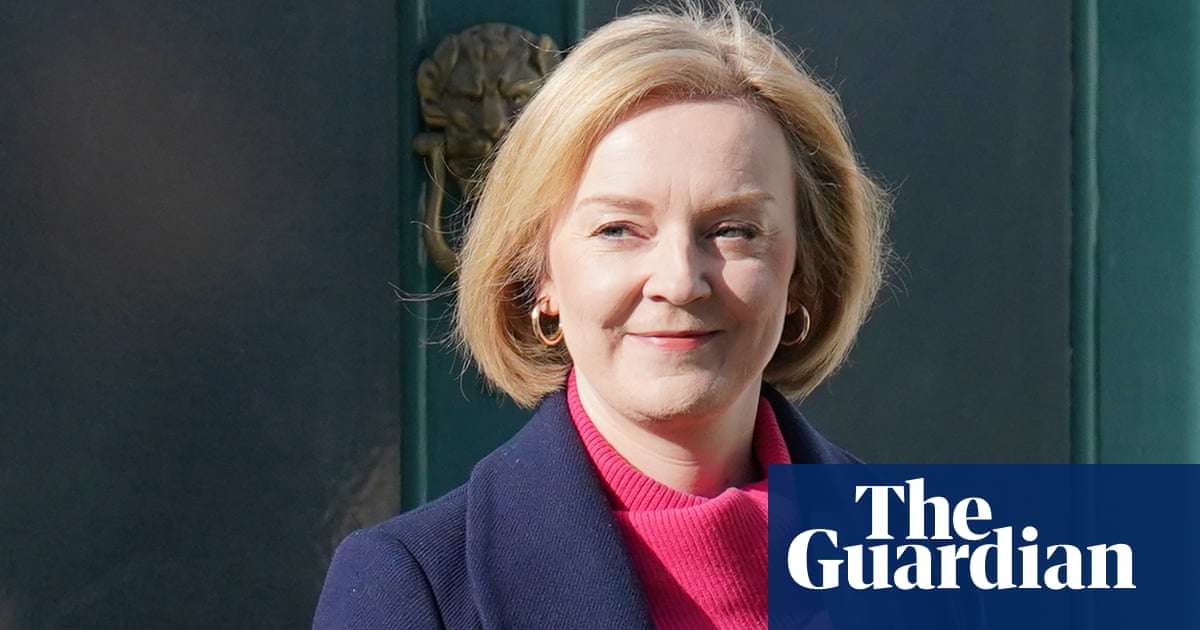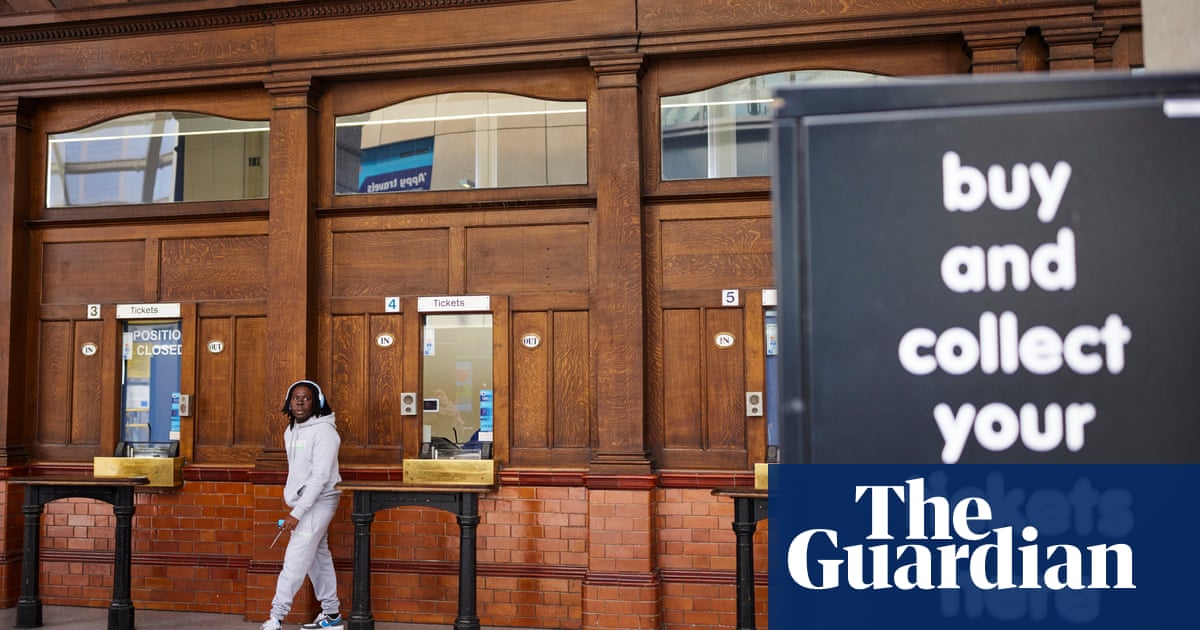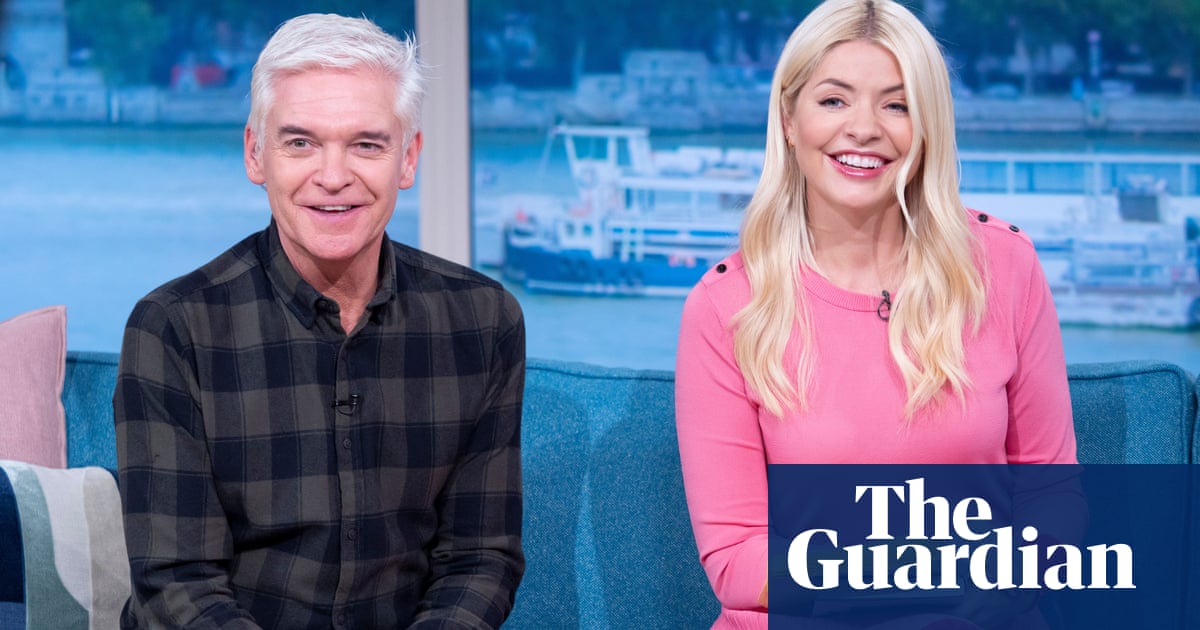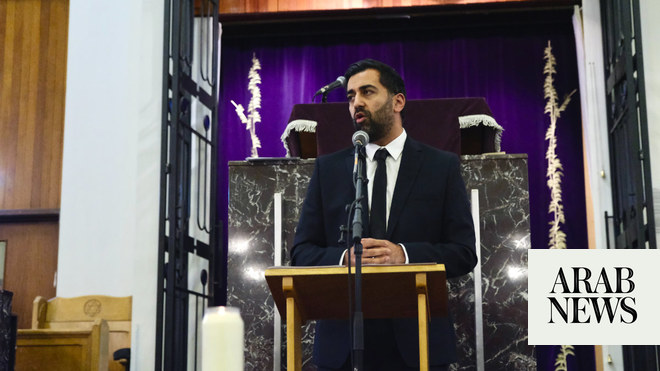
Truss apologises for problems and higher costs caused by "mini-budget"
Liz Truss has apologised for going “too far and too fast” with the economic policies in her “mini-budget” and has accepted responsibility for the problems created by it.
The prime minister refused to say whether her vision for Britain was “dead”, during an interview with BBC political editor Chris Mason but admitted that she had made mistakes. She also said that she would lead the Conservative party into the next general election.
Truss said: “I do want to accept responsibility and say sorry, for the mistakes that have been made. I wanted to act but to help people with their energy bills to deal with the issue of high taxes, but we went too far and too fast. I’ve acknowledged that. I put in place a new chancellor with a new strategy to restore economic stability.
“I recognise that we did act too fast, and that’s why I’ve adjusted what we’re doing and I do think it is the mark of an honest politician who does say, yes, I’ve made a mistake. I’ve addressed that mistake. And now we need to deliver for people, you known what we’ve said we’ll deliver.”
Truss admitted that government policies have made things harder for families and their ability to pay their mortgages, the repayments on which have risen since Truss and Kwasi Kwarteng’s “mini-budget”.
“I have said sorry for the fact that we did act too far. We went too far and too fast … The reason I did that was to make sure that we were dealing with the immediate issue of the energy crisis. And we did help people with their energy bills.”
The prime minister sought to reassure vulnerable families that they would still get support with their energy bills, despite another U-turn on Monday that the government finance in place that keeps the average bill for a household to £2500 would only be universally available until April.
“I can can reassure people off is that the most vulnerable will be protected into next winter. We’re looking at exactly how we can do that. And being in government is always about a balance or being able to make those decisions but I also have to think about and the chancellor has to think about economic stability. So we will make sure those households who are struggling, do have that support into next winter. We’ll be saying more about that in due course,” she said.
Truss repeated her campaign’s central pledge that she is focused on growth, and emphasised that she had been “upfront and honest” with her apology and undoing the policies she had Kwarteng had introduced.
“Well my message to my colleagues is yes, I completely acknowledge that there have been mistakes. I have acted swiftly to fix those mistakes. I’ve been honest about what those mistakes were. And what we now need to do is move forward and deliver for the country because that’s ultimately, that’s ultimately what people care about. People care about us delivering and that’s what we as elected politicians need to focus on.”
Another eventful day, as we saw Jeremy Hunt reverse nearly all of the measures introduced in the “mini-budget” that has been the cornerstone of Liz Truss’ time so far in Downing Street.
Jeremy Hunt has dropped Liz Truss’s economic plans, including tax cuts and slashing the energy price freeze which the prime minister had championed. The universal provision will now end in April.
Hunt refused to rule out a windfall tax, as well as cuts to defence spending and the pensions triple lock.
He told Channel 4 news that a combination of tax rises and spending cuts will be used to help patch up a £40bn hole in the budget.
The chancellor has appointed a four-person advisory panel to give counsel on the economy, including George Osborne’s former chief-of-staff Rupert Harrison.
Truss did not turn up to answer an urgent question on the economy from Labour leader Sir Keir Starmer. Leader of the Commons Penny Mordaunt answered in her place, but was forced to say that she was not “hiding under a desk”.
Truss apologised in an interview on BBC News, saying that she acknowledged that mistakes had been made.
Earlier in the evening Truss had apologised to the One Nation group of Conservative party MPs.
An election will take place tomorrow for the 1922 Committee, the group of backbench Conservative MPs, that could pave the way for a confidence vote in the prime minister.
Defence secretary Ben Wallace said he will not stand as a unity candidate if Truss stands down, in an interview with the Times.
Two polls by Deltapoll and Redfield and Wilton Strategies puts the Labour party 32 and 36 points ahead of the Conservative party respectively. It would leave the Tories with less than 100 seats, and Labour with a majority of more than 300.
US president Joe Biden’s press spokesperson Karine Jean-Pierre has said he did not regret his criticism of Truss’ “mini-budget”.
That’s all for today, thanks for following along. I leave you with the round up of today’s events.
Two final frontpages, the Daily Mail lead with Liz Truss being “In Office, But Not In Power”
The Daily Mirror’s headline is simply “Humiliated”.
Roundup of Tuesday"s front pages
The front pages of tomorrow’s national newspapers in the UK have started to be published, with the focus on Jeremy Hunt’s U-turn announcement today.
The Guardian has the story of Hunt tearing up the economic plans that have defined Liz Truss’ time as prime minister.
The photograph of former leadership candidates Penny Mordaunt and Hunt sat next to Truss and her deputy Thérèse Coffey tells a story in itself.
The Sun is perhaps one of the most scathing, calling Liz Truss “The Ghost PM” after she did not answer the urgent question in parliament, and then sat next to Jeremy Hunt as he delivered his statement on the changes in economic policy.
The Telegraph leads with Hunt’s statement to the Commons, saying that he would not rule out a windfall tax, that energy bills could go up for families after all from April and the plans to get rid of Truss continue.
The i has the view of Hunt taking control of the direction of policy, as Truss faces “48 hours” to save her premiership.
Business freesheet newspaper City AM has an image of a tombstone with “Trussonomics … laid to rest by Jeremy Hunt” adorning it.
And finally, regional newspaper from the North East The Daily Echo leads with the U-turn from Jeremy Hunt but it also carries an interview with Labour leader Sir Keir Starmer where he says he will “pick up the levelling up agenda and make it happen”.
Truss apologises for problems and higher costs caused by "mini-budget"
Liz Truss has apologised for going “too far and too fast” with the economic policies in her “mini-budget” and has accepted responsibility for the problems created by it.
The prime minister refused to say whether her vision for Britain was “dead”, during an interview with BBC political editor Chris Mason but admitted that she had made mistakes. She also said that she would lead the Conservative party into the next general election.
Truss said: “I do want to accept responsibility and say sorry, for the mistakes that have been made. I wanted to act but to help people with their energy bills to deal with the issue of high taxes, but we went too far and too fast. I’ve acknowledged that. I put in place a new chancellor with a new strategy to restore economic stability.
“I recognise that we did act too fast, and that’s why I’ve adjusted what we’re doing and I do think it is the mark of an honest politician who does say, yes, I’ve made a mistake. I’ve addressed that mistake. And now we need to deliver for people, you known what we’ve said we’ll deliver.”
Truss admitted that government policies have made things harder for families and their ability to pay their mortgages, the repayments on which have risen since Truss and Kwasi Kwarteng’s “mini-budget”.
“I have said sorry for the fact that we did act too far. We went too far and too fast … The reason I did that was to make sure that we were dealing with the immediate issue of the energy crisis. And we did help people with their energy bills.”
The prime minister sought to reassure vulnerable families that they would still get support with their energy bills, despite another U-turn on Monday that the government finance in place that keeps the average bill for a household to £2500 would only be universally available until April.
“I can can reassure people off is that the most vulnerable will be protected into next winter. We’re looking at exactly how we can do that. And being in government is always about a balance or being able to make those decisions but I also have to think about and the chancellor has to think about economic stability. So we will make sure those households who are struggling, do have that support into next winter. We’ll be saying more about that in due course,” she said.
Truss repeated her campaign’s central pledge that she is focused on growth, and emphasised that she had been “upfront and honest” with her apology and undoing the policies she had Kwarteng had introduced.
“Well my message to my colleagues is yes, I completely acknowledge that there have been mistakes. I have acted swiftly to fix those mistakes. I’ve been honest about what those mistakes were. And what we now need to do is move forward and deliver for the country because that’s ultimately, that’s ultimately what people care about. People care about us delivering and that’s what we as elected politicians need to focus on.”
An interesting snippet from Bloomberg’s roundup of today’s events, which has been published this evening.
Conservative MPs think that Jeremy Hunt’s change to the plan to subsidise energy bills to keep costs down could cause more problems for the party, as voters will face higher mortgages at a time where their energy bills would also increase. One described it to the news website as an “electoral black hole”.
Ben Wallace has said he will not be a unity candidate to become prime minister, amid speculation he could have been lined up to take over from Liz Truss if she resigns.
The defence secretary has said he wants to stay in his job. Wallace had previously been discussed as a leadership candidate this summer, but did not stand.
He told the Times (paywall): “The public wants stability and security and if the government fails to deliver that then they will send us into opposition.
“I want to be the secretary of state for defence until I finish. I love the job I do and we have more to do. I want the prime minister to be the prime minister and I want to do this job.”
Wallace is about to travel to Washington, where he will discuss the war in Ukraine and its dynamics as Russia’s position appears to be weakening. He criticised Tory MPs for their actions in recent weeks.
“I say to the colleagues who think our role is to feed the instability within the party, by proposing other people as leaders no matter who they are, [you] are doing a disservice. The markets are responding at the moment in the UK to unsurety about the government. The best way to give those markets some confidence is for people to stop playing political parlour games,” he said.
Simon Hoare said some of the errors from the Truss’s government have been “schoolboyish” and “unforced”.
The Tory MP told journalists following a meeting of the One Nation group of Conservative MPs: “Some of the errors have been schoolboyish, some of the errors have been unforced, some of the wounds have been self-inflicted. And that’s regrettable. But we are where we are.”
He added that “polls come and go”, arguing that “this voracious appetite for who thinks what about whom, when and where, doesn’t actually help, because it doesn’t allow for calm, reflective decision making”.
He said no one in the meeting had suggested Ms Truss should stand down.
Veteran Tory MP Christopher Chope has said the Conservative party “faces oblivion” if it gets rid of Liz Truss.
Chope, who said Truss is the 9th leader during his time in parliament told Iain Dale on LBC: “If we get rid of her, then we are basically faced with having a general election. There is another 18 months or two years until a general election is due.
“Our ship, our state has been blown off course, there is no doubt about that. It has been a very troublesome couple of weeks. I think if we stick with the team at the helm at the moment, that is the way forward.
“If you ditch your leaders it normally makes things worse rather than better. I said when Boris is ousted, we would rue the day when we did it, and I think I have been proven right, but we would rue the day more if we get rid of Liz Truss.
“There is no way we get rid of her without triggering an election, changing the rules and creating a whole lot more chaos in the country at a time where we should be concentrating on sorting out our political and economic problems.”
He said there was “no way” Rishi Sunak would become leader and prime minister, because there is “too much of a coalition of opposition to him”.
More from Liz Truss’ speech to the One Nation group of Conservative MPs in parliament this evening.
Her press secretary has said that she had tried to do too much too quickly.
“The prime minister said she was sorry for some of the mistakes that have been made over the last few weeks.” Truss emphasised the need to push ahead with changes to National Insurance and the energy package.
MP Simon Hoare, who was at the meeting, told PA Media: “I think she, in a very sincere way - and I was struck by her sincerity... she was candid that mistakes had been made. I think some of those mistakes she admitted were avoidable mistakes.
“But I thought that the tone, the language that she adopted, indicated a clear apology, without... flagellating herself in the middle of the room.”
Anonymous briefings continue, however, the BBC’s political correspondent Iain Watson said one MP described her appearance as “the first time [they had] heard a corpse deliver its own eulogy”.
Liz Truss’ press secretary has said that there was not a point on Monday when she thought she would have to resign.
Journalists have also been told that there are no plans for a reshuffle of the cabinet, despite calls for people from across the party to be brought into the top table of government to try and unify the party.
Truss’ press secretary said her general mood had been “determined” to do “what’s best for the country and deliver the growth plan”, according to PA Media.
Cabinet ministers arrive at Downing Street for Truss drinks reception
Cabinet members are arriving at Downing Street for a drinks reception with Liz Truss.
Business secretary Jacob Rees-Mogg, fresh from his appearance in the Commons for the second reading of the energy bill, said Truss should “absolutely not” resign. “[She is] a very good prime minister,” he told PA Media.
Foreign secretary James Cleverly, leader of the House of Commons Penny Mordaunt, Tom Tugendhat, chief whip Wendy Morton and culture secretary Michele Donelan have also been seen arriving.
Here’s some insight into the members of Jeremy Hunt’s panel of experts who will advise on economic policy from my colleague Richard Partington.
They include Rupert Harrison, who was a key aide to George Osborne when he was chancellor. Karen Ward, Gertjan Vlieghe and Sushil Wadhwani complete the line-up.
The Lib Dem Treasury spokesperson Sarah Olney has criticised them as “purely wealthy asset managers” whose appointment shows how out of touch the government is.
Rupert Harrison, an architect behind the former chancellor’s austerity drive, will provide advice on economic policy as Liz Truss’s government battles to repair the damage to its reputation after the mini-budget.
The chancellor said Harrison would make an important contribution as he pushed to find billions of pounds in budget savings from tax changes and spending cuts.
“Rupert Harrison, in particular, has enormous experience of running the Treasury under George Osborne,” he told the Commons.












